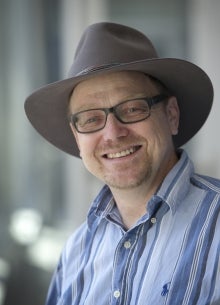
Professor Dixon will lead a research team to develop the antimicrobial peptide pituitary adenylate cyclase-activating polypeptides (PACAP) into a treatment for microbial infections in fish and shrimp aquaculture. The team includes:
- Professor Mark Fast, University of Prince Edward Veterinary College, Canada
- Professor Mario Estrada Garcia, Centro de Ingenieria Genetica y Biotecnologia, Cuba
- Professor Laida Ramos Trujilo University of Havana, Cuba
- Professor Yamila Carpio Gonzales, Centro de Ingenieria Genetica y Biotecnologia de Cuba
By studying tilapia, African catfish, and shrimp in Cuba, he plans to use PACAP to reduce the use of antibiotics in aquaculture and prevent the development of antibiotic resistant strains of pathogens. This approach could enhance the export of Cuban aquaculture and provide better food security for a growing global population.
The research project is funded through the InnoVet-AMR program, a partnership between Canada’s International Development Research Centre (IDRC) and the United Kingdom’s Department of Health and Social Care (DHSC) to reduce the misuse of antimicrobials in animal production in the Global South.